Your Cart is Empty
Free shipping on Orders $79+
Free shipping on Orders $79+
Explore

Eating Organic: Are Organic and Non-GMO Fruits & Vegetables Worth the Extra Money?
December 16, 2016 3 min read
When we walk down the aisle of the produce aisle, we can see the vast variety of ingredients, both organic and non-organic. They seemingly look the same and sometimes you wonder if there really is any difference. Have you ever wondered if they were worth the extra cost?
We have heard over and over again that we need eat more fruits and veggies to improve our health. After all, “an apple a day keeps the doctor away.”
So let's go to the store together and get some apples. Perusing the luscious selection- we see Fuji Apples, Granny Smith, Pink Lady and many more. Fuji Apples are my personal favorite, so let’s choose this one.
Standing in front of the Fuji apples, you are proposed with yet another choice- organic Fujis or non-organic Fujis. The organic apple is more expensive, smaller and not as colorful or shiny (waxed) as the non-organic apple. So why go for the organic at all?
Is organic certification truly worth the extra money for what seems to be a visually inferior product? The answer is in the details that you cannot see.
1. Organic Foods are never genetically modified
Genetically modifying food is a relatively recent development and its safety data is not fully established. Genetically Modified Organisms, or GMOs, mean that the food source has been modified at the genetic level (recombinant DNA) to possess characteristics that will make production quicker and more cost efficient. Instead of being part of the big food corporations’ experimental subjects, why not enjoy food the way mother nature intended? Free of any genetical modifications. This is reason why non-organic version of fruits are typically larger, more colorful and cost less.
2. Organic Foods are free of synthetic pesticides or herbicides
Neurotoxins based chemicals designed to kill insects and pesticides are commonly used in most non-organic farming. They are used very liberally and in large amounts. Meaning, that it’s nearly impossible to wash off, because they are deeply present in the skins and pores of the produce themselves. The best way to avoid consuming neurotoxins, is to consume products that are certified to not have them in the first place.
3. Organic Foods are never exposed to irradiation
Food irradiation is designed to save cost and kill off pathogenic microorganisms. Unfortunately, this application will also eliminate the friendly, naturally-occurring microorganisms that contribute to the overall nutrition. It will seem that Food irradiation is for the safety of the consumer, however, there is a twist. One of the most common reasons for this process to take occur is to extend the shelf life of the produce
4. Organic Farming is better for the environment
Organic farming focuses on sustainability and without the use of harsh chemicals. In contrast to non-organic commercial farming, organic farms are safer for the land, animals, workers and crops. The common use of synthetic pesticides, herbicides and fertilizers in conventional farming can create run-off and pollute our groundwater. This is not the case with organic farming practices, as it uses natural farming aids like compost and manure.
The above is just the beginning of the many more benefits of eating organic. For more Organic Facts visit organicfacts.net
The good news is, all SMART Pressed Juices will always be certified organic, non-GMO and guaranteed to be clean label and good for you.Our nutritionist carefully selected over 60 of the most nutrient-dense, organic superfoods there are on the planet, so you can rest easy knowing that we have your best health in mind.
For more SMART lifestyle tips like this, visit www.smartpressedjuice.com and follow us on Instagram and Twitter, or like us on Facebook. You can also visit our Amazon store to stock up on our delicious juices.
Statements made on this website have not been evaluated by the U.S. Food and Drug Administration. Information provided by this website or this company is not a substitute for direct, individual medical treatment or advice. It is the responsibility of you and your healthcare providers to make all decisions regarding your health. We recommend that you consult with your healthcare providers regarding the diagnosis and treatment of any disease or condition. Products sold on this website are not intended to diagnose, treat, cure, or prevent any disease.
{"themeColor":"#574CD5","iconColor":"#574CD5","showLogo":true,"topBottomPosition":10,"rightLeftPosition":10,"iconSize":"small","iconCustomSize":64,"position":"bottom-left"}

